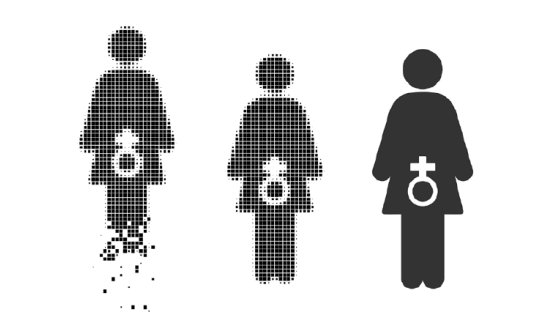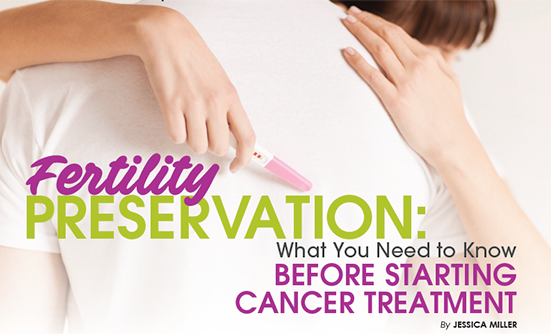According to the American Cancer Society, about 891,500 women in the United States will be diagnosed with cancer in 2019. Many of these women receive chemotherapy or hormonal therapy to treat the cancer.
Chemotherapy and other newer treatments have increased cancer survival rates to an all-time high; however, among women who receive chemotherapy and/or hormonal therapy, many are left with unexpected changes in their sex life, changes that are not life-threatening, but they disrupt their quality of life.
In one study of women with breast cancer, 70% of those women experienced problems with their sexual function.1
Estrogen Loss & Sex
Loss of estrogen hormone is the primary cause of many physical symptoms in women. The reduction in estrogen levels, which occurs to some degree in all women undergoing cancer treatment, affects many functions in the body.
The reduction in estrogen during cancer treatment causes many symptoms that normally occur during menopause, including hot flashes, night sweats, insomnia, urinary changes, weight changes, mood changes, fatigue, heart palpitations, and bone loss.
However, female cancer survivors are often surprised when they experience an extreme drop in their sexual desire, find sexual arousal difficult, experience a lack of vaginal lubrication during arousal, and are unable to enjoy orgasm as before. These sexuality changes usually come as a complete surprise to patients with cancer, because they were not forewarned about these changes by any of their providers.
Patients may expect sexual changes during treatment, but they don’t realize that many of these side effects will linger and continue to affect their sex life long after treatment is over. Because sexuality-related changes are not life-threatening, they are often not addressed by their doctors or nurses unless the patient returns to her provider for specific help.
But many women suffer in silence, attributing their problems to personal inadequacies. Patients often think that this is the price they must pay for being cancer-free.
If you are one of these women, know that having enjoyable sexual relations, even after cancer treatment, is still possible, and it’s important enough to fight for it. The same survivorship attitude that helped you face cancer can help you tackle and overcome these sexual side effects.
Sexuality Tips
Here are a few steps to help you get started on the road to complete healing.
- Make a list.
Itemize the specific problems you are experiencing in relation to a fulfilling sex life and be as specific as possible; number your potential roadblocks, with number 1 being the most severe and 10 being the least - Identify each problem.
The problem may be physical (such as vaginal dryness), psychological (a lack of desire), relational (not feeling attracted to your partner), or a result of a cultural belief (for example, God doesn’t want me to be sexual); good sex is a combination of physical and psychological components, and neither can be ignored - Investigate each problem.
Any identified blocks to restoring your sex life must be addressed; start with the most troublesome and work your way down the list
You Can Get Help
Hormonal changes after cancer treatment may be temporary, or they may be long-lasting. The impact varies according to a woman’s age, her menopausal status at the time of treatment, and the type and duration of drugs used.
The good news is that many of the side effects of chemotherapy and hormone therapy have interventions that are effective in reducing or eliminating the impact on your quality of life. But it does take some work. Here are some of the more common interventions to alleviate these problems:
Vaginal moisturizers help to restore moisture in the vagina, which can reduce dryness, irritation, and pain during intercourse.
Lubricants, applied liberally before intercourse, can reduce the discomfort or pain from vaginal dryness during intercourse.
Vaginal estrogen options restore the elasticity and moisture to the vagina and are generally safe even for patients with estrogen receptor-positive breast cancer; these include vaginal creams, vaginal rings, and vaginal tablets, but they require a prescription from a physician.
If intercourse is painful, or if you experience bleeding after intercourse, sexual restoration plans can help to restore damaged vaginal tissue from extreme dryness. The first step is to stop all attempts of sexual penetration until the tissues heal.
Medications for low sexual desire. In addition, in recent years the FDA approved 2 medications for low sexual desire (or hypoactive sexual desire disorder) in women. Ask your doctor about these new medications. The first non-hormonal drug is a tablet called Addyi (flibanserin), which was approved in 2015 for low sexual desire in premenopausal (but not postmenopausal) women. Like all medications, Addyi requires a prescription and can have side effects, such as dizziness, fatigue, nausea, or dry mouth.
And in June 2019, the FDA approved Vyleesi (bremelanotide) for the treatment of low sexual desire in all women (premenopausal and postmenopausal). It is administered as an injection that should be used 45 minutes before a planned sexual activity. The most common side effects reported with Vyleesi are nausea and vomiting.
Finally, testosterone is a hormone available in different forms and is often used by men. Testosterone increases sexual desire in women, but it is not approved by the FDA for this purpose in women. Nevertheless, it is used by some women to help with sexual function.
Speak Up
If you are experiencing issues with your sexuality, you are not alone. Loss of sexual desire is a common side effect of cancer treatment that affects many women with cancer or cancer survivors. If you are blaming yourself for any sexual difficulties that you have encountered—stop. The decrease in your sexual drive is not your fault!
Sex is a normal part of life, but it is a topic most people feel uncomfortable discussing. Usually, doctors and nurses depend on the patient to initiate a discussion about sex, so you have to take an active role in itemizing, identifying, and investigating the problems that are preventing satisfaction in your sex life.
You can’t be afraid to speak up, ask questions, seek help, and take ownership. During routine appointments, let your healthcare provider know you have questions about sexuality.
This allows your physician the opportunity to either answer your questions or to refer you to another physician. Answers are available, so don’t give up. There are solutions to reduce or eliminate most of your sexual problems.
Sex Is Good for Your Health
In addition to being pleasurable, sex is also beneficial to your overall health and well-being. Regular sexual excitement and sexual intercourse increase blood flow to the vaginal area to heal or prevent dry, damaged tissues and prevent narrowing to the vagina.
Sexual activity also creates a bond between you and your partner, creating psychological connectedness. Participating in sexual activity is good for the mind and for the body, so give yourself the gift of good sex.
Make time to think about and find help for the problems that are standing in your way. You are a cancer survivor. You can do this!
Key Points
- The sexual side effects caused by loss of estrogen during cancer treatment may linger and continue to affect your sex life long after treatment is over
- Vaginal lubricants, topical estrogen therapy, and other options are available that can restore sexual function in women with cancer or survivors
- Stop blaming yourself for your sexual difficulties—this is not your fault
Reference
- Panjari M, Bell RJ, Davis SR. Sexual function after breast cancer. Journal of Sexual Medicine. 2011;8(1):294-302.
















